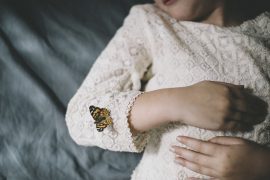I have seen the importance of psychological safety first hand, when in days past I had the time to coach a volleyball team. As I became more experienced, I came to appreciate, and ultimately prioritise, the psychological safety of every team member. The players were in their teens and early twenties, and their performance flourished when they felt safe and relaxed. With this platform of confidence in place, the team became incredibly resilient when under pressure.
Given that kangaroos, monkeys and teenage humans have such a strong need for psychological safety it seems a massive oversight to neglect it for infant humans. It is expected practice for infants to sleep in separate rooms to their parents and to be cared for all day by unfamiliar others. In such a vulnerable state, and with no human presence nearby, it is no wonder infants resort to the only method of communication available to them: crying.
Given that kangaroos, monkeys and teenage humans have such a strong need for psychological safety it seems a massive oversight to neglect it for infant humans.
It should be no surprise that children raised this way will have trouble sleeping. I feel almost embarrassed to tell other parents that my own daughter puts herself to sleep for her afternoon nap. At night she decides whether to sleep on her mattress on the floor, next to our bed, or with us in ours. I can never predict where she will end up, but she is best placed to make decisions based on her daily needs.
By prioritising her emotional wellbeing from the start, we are now rewarded with good sleep precipitated by bedtime stories and laughter. Unfortunately in today’s society this is an unusual bond.
Jeremy Majid writes the blog Compounding Time which explores how we can best spend our time, now and into the future. He is also the co-founder of the publishing house Leabrook Press, author of the book Graduates’ Guide to Work, and the book and cover designer for In Situ and Float. After completing his tertiary education in mechanical engineering and commerce, Jeremy spent a decade in supply chain roles across three diverse industries before deciding to refocus. He is now a father, coach, publisher and writer. He lives in Adelaide, Australia, with his wife and young daughter.










